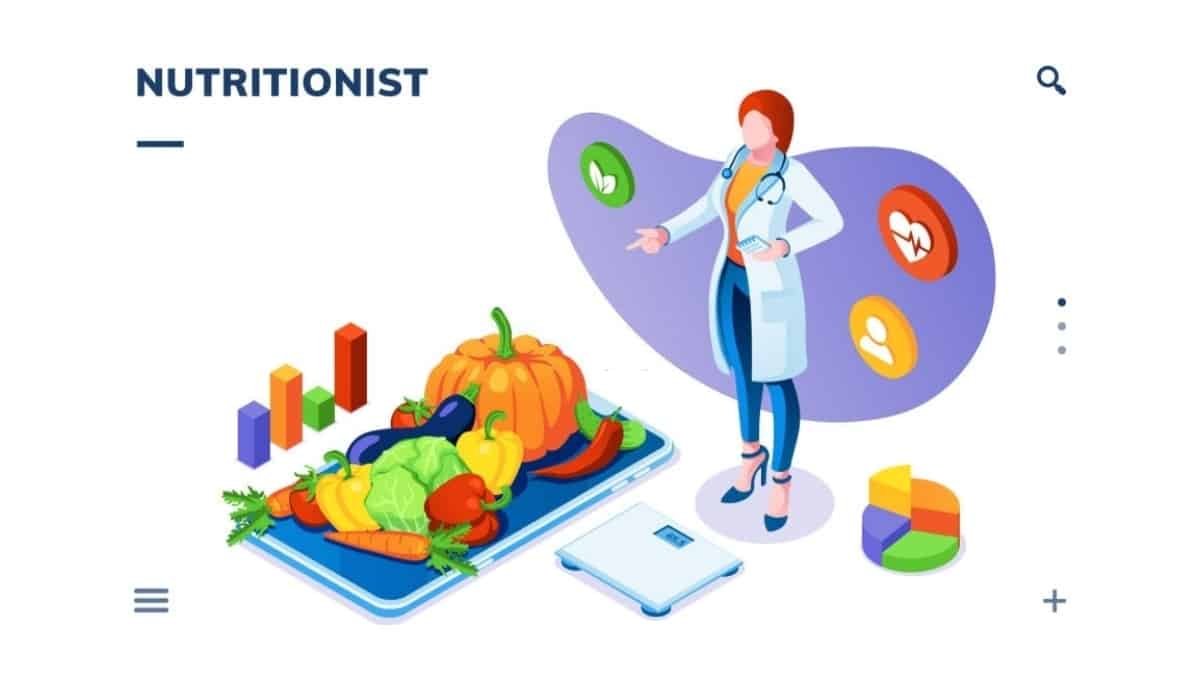[ad_1]
Do you have a passion for health, food and helping people? This article will give you best tips for making your career as a confident Nutritionist. Food has been one of the oldest remedies to a plethora of ailments, be it our grandmother’s herbal remedies or a simple chicken soup; these foods have the ability to heal.
If your dream job involves trying to get people to develop a positive and healthy relationship with food and promoting a healthy lifestyle, being a nutritionist allows you to expand on these interests and so much more.
Nutrition is one of the most pivotal elements that lead to a healthy life, and the importance of healthy nutrition for human beings has been well researched and documented.
There are apparent benefits to good nutrition, primary resistance towards communicable diseases, aiding in recovery, and other countless benefits such as improving our state of mind and overall well-being.

This is where the role of a nutritionist comes to the fore as they are responsible for formulating plans and dietary instructions which can enable us to live our best lives.
As we enter a new decade that will see a monumental rise in healthy foods and health enthusiasts who want only the very best for themselves to preserve and care for their bodies, the role of a nutritionist is something that is set for a massive uptick.
In this article, we look at the steps you can take to take advantage of this lucrative opportunity and become a nutritionist. But first off, let us answer a few common questions and alleviate any concerns.
What course should you prioritize?
Aspirants who want to pursue a career as a nutritionist must do a course in Nutrition and Dietetics as broad scientific knowledge of the field is mandatory. In the course, students can learn about clinical nutrition, food sciences and the different types of fields in nutrition.
You can master in one of four specialization fields, namely – Clinical Nutrition, Public Health Nutrition, Food Science and Technology, and Sports Nutrition.
The course also offers skill development in critical analysis and people management, which are essential for a nutritionist. This also enhances your applied knowledge on the subject for future research in the field of Nutrition and Dietetics.
What does a nutritionist do?
The primary role of nutritionists is to manage and control people’s eating habits with conditions such as heart disease, diabetes, and obesity. They can also work with individuals to formulate a diet plan that closely correlates with their weight loss or health targets.
The essential function of any nutritionist is to help their clients establish a positive and healthy relationship with their food, lifestyle, and bodies, trying to strike a fine balance between the three.
Some of the major responsibilities include –
- Creating educational material relating to healthy food choices.
- Evaluating health and nutritional needs of clients.
- Formulating nutrition plans which are custom-made for clients and their needs.
- Guiding the clients and keeping track of their progress.
- Always being up to date regarding the latest developments in the field.
Where can you work as a Nutritionist?
As a nutritionist, there are several institutions and organizations which could use your skillset. Healthcare institutes, nursing homes, universities and pharmacies are some of the most popular places which offer and prioritize posts for Nutritionists.

If an office job does not interest you, practising from your home is a perfectly viable option that nutritionists often engage in.
Career opportunities
We have already looked at some of the places you can work in as a nutritionist; now, let us explore some major careers in detail.
Clinical Nutritionist – The focus of this profession is to research on diseases and try to treat them by means of prescribing diets. Variations of this profession include jobs as a Bariatric surgery nutritionist and a registered dietician (RD) at MNCs or hospitals.
Public Health Nutritionist – This field focuses on public health issues regarding diseases that affect the masses. Graduates who have specialized in this field can pursue careers in organizations like UNICEF and WHO, as nutrition, journalist or public health policymaker.
Sports Nutritionist – As a sports nutritionist, you should deal with specific nutritional requirements for sportspersons. This may include jobs like a digital sports coach, supplements Nutritionist and Nutritionist at gyms.
Food Scientist, Food Quality Controller etc, are other jobs that directly relate to food sciences.
The popular adage goes; health is wealth and a career as a nutritionist ensures that you can be at the forefront of the health and positive change that your clients deserve. Now that you know the steps to get started do not waste any time and be on your journey to your dream job today.
[ad_2]
Source link









